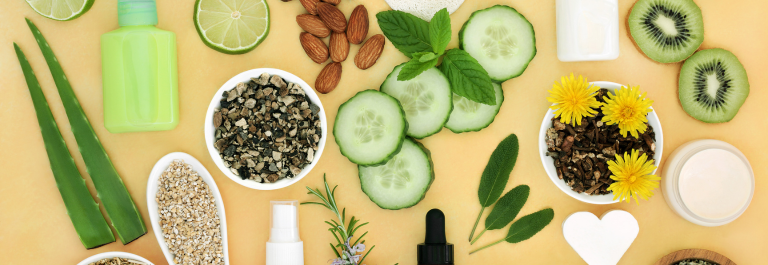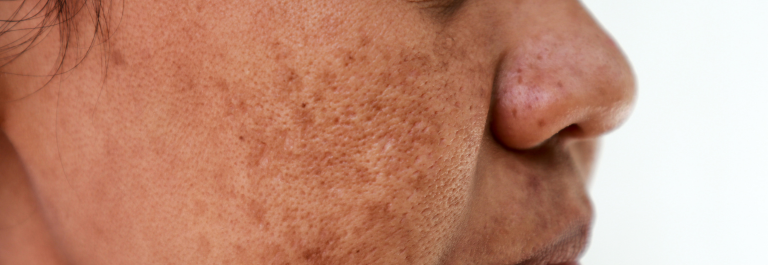Getting a tattoo is a big decision at the best of times, but for those of us with sensitive skin, there can be even more factors to consider. Maybe you're thinking about making your first trip to the tattoo shop, but you're scared about eczema flare-ups. Or you've already got body art, and it doesn't seem to be healing quite right.
In this post, we'll explore everything you need to know about having a tattoo with eczema-prone skin, including:
-
The risks of tattoos and atopic dermatitis
-
Things to consider before your first tattoo appointment
-
Natural treatments for tattoo aftercare
Keep reading to learn more about how to keep your skin and tattoo safe.
Can I Get A Tattoo if I Have Eczema?
Tattoos can be a powerful form of self-expression and creativity. For those of us with eczema, body art can boost our self-confidence, helping us to feel happier and more comfortable in our skin. It can be frustrating to think that our dry skin might get in the way of this.
Depending on the severity of your skin condition, with extra precautions, getting a tattoo with atopic dermatitis can still be a safe, successful, and joyful experience.
Before making any decisions, though, we must be aware of the increased risks.
What Are The Risks of Tattoos With Eczema?
-
Eczema flare-ups and hyper-sensitivity
-
Hyperpigmentation or hypopigmentation
-
Chronic inflammation
-
Scarring and Keloids
-
Infection
-
Risk of other tattoo complications, such as contamination from bloodborne viruses
-
Temporary or permanent change to the tattoo design
Suppose you have a history of skin lesions related to severe eczema, psoriasis, lichen planus, vitiligo, and discoid lupus. In that case, it may not be medically safe for you to get a tattoo, and it is essential to consult your dermatologist.
Things To Consider Before Your First Tattoo Session
The Right Timing
Getting a tattoo is exciting, but finding the right moment is crucial. Especially if you're in the middle of an eczema flare-up, now might not be the best time. Atopic dermatitis usually indicates an overactive immune system reaction, so exposing your skin to the foreign substance of tattoo ink increases the risk of a negative reaction. While it might feel frustrating to hold off on your plans until your skin calms down, getting your tattoo safely will be worth the wait.
The Right Artist
Finding the right tattoo artist has a massive role in ensuring your experience runs smoothly and successfully. In particular, you could work with an artist who has experienced eczema themselves or has worked with customers who have it. Take your time to read reviews and look through an artist's portfolio. People of color may wish to find tattoo artists who understand how different skin conditions impact various skin tones. What matters most is that you feel comfortable and well supported.
The Right Ink
To help reduce the risk of eczema flare-ups, it's important to ask your artist to use special hypoallergenic tattoo inks. You could also run a small patch test to put your mind at rest. This will help preempt any allergic reactions before you get your full-size tattoo.
How To Care For My Tattoo
Those of us with eczema already have a lot of experience looking after our skin, and all of this knowledge stands us in good stead for safe tattoo aftercare.
To aid the tattoo healing process:
-
Remove your bandage within 24 hours
-
Wash your hands with a natural eczema soap before you touch the tattooed area
-
Use a fragrance-free eczema cream 1-2 times daily, such as the Organic Manuka Skin Soothing Cream or this Super Dry Soother.
-
Cleanse the tattoo with a wet cloth or paper towel
What If I Get An Eczema Flare Up?
Don't panic - the tattooing process involves rupturing the skin's barrier with injected pigments, so a new tattoo is similar to a fresh wound. It is understandable that our skin condition may be aggravated. If you do notice your eczema flaring up, you can:
-
Avoid itching or scratching your skin. Try gently tapping instead.
-
Relax in a gentle oatmeal bath.
-
Be sure to consult your doctor if you notice any swelling, redness, or discharge on the tattoo site
Safely Care For Your New Tattoo Today
Tattoos and eczema don't have to be a recipe for disaster. Follow these tips and try natural aftercare to look after your tattoo today.


